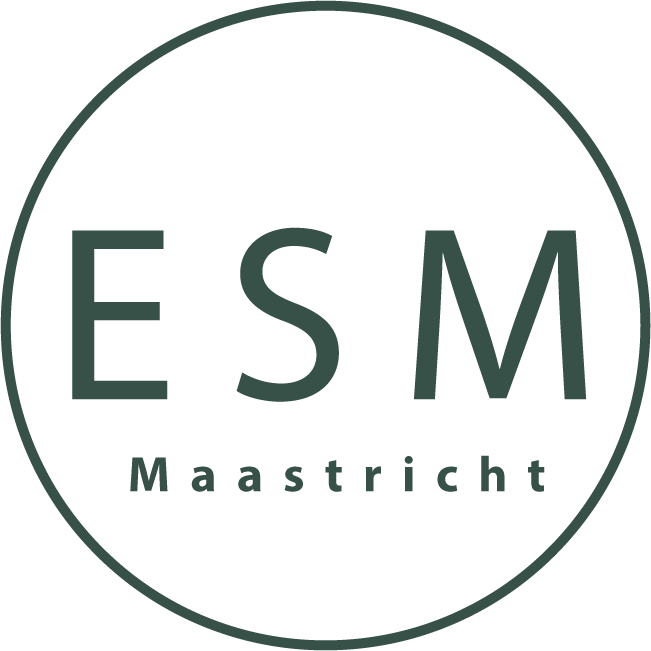


The ESM-Maastricht team consists of research pioneers into variation in behavior, feelings, perception and thoughts in relation to certain physical and mental complaints. We would like to know how we can understand the variation between people and within the same person over time. This concerns people who experience problems or complaints in their daily lives. Can we reliably measure complaints moment by moment, in a real environment? And can we use the outcomes to tackle or even prevent complaints? We use ESM to investigate just this!
The Experience Sampling Method (ESM) is a research method that offers the possibility to measure symptoms,
mood, cognition and behavior in daily life. We use short questionnaires that someone fills in at random times of the day.
The information from these repeated measurements provides insight into a person's daily life over a period of time.
The method hardly appeals to a person's long-term memory, which is distorted in everyone under normal circumstances
and can sometimes be affected by psychopathology.
Other terms for ESM and related data collection methods include ‘ecological momentary assessment’, ‘ambulatory assessment’, ‘beeper studies’,
‘the structured diary method’, ‘intensive longitudinal assessment’, and ‘real-time data capture’.
Research has shown that greater self-responsibility for one’s own treatment (for example, patients who measure their own blood sugar levels and then decide on medication themselves) leads to better treatment results and compliance. Certain eHealth or mHealth applications can support people by managing themselves. This care innovation should lead to patients becoming increasingly autonomous and co-directing their own treatment. This is the core of a new personal healthcare that starts from the individual and empowers people.
One of the core problems in mental health care is that we have focused too strongly on solutions in people’s heads.
Too little attention has been paid to the importance of a meaningful context and the own living environment.
In the meantime, it has become clear through the positive health movement that optimal care is aimed at people achieving their goals in life.
Mental health goes beyond symptom reduction and concerns 6 domains: psychological and somatic symptom reduction (together symptom reduction),
daily life functioning and participation (together social integration) and meaning and quality of life (together personal recovery).
Interventions often have to be planned in multiple domains. The effects of these interventions can be interchangeable (for example,
a better social network or physical health can provide results at the symptom level).
The domains of positive health underline the importance of everyday life.
And to provide coaching for a better daily life, individual information about the daily situation is needed.
Something that is difficult to obtain with classic assessment tools (interviews and retrospective questionnaires).
This requires a paradigmatic shift in healthcare. Research must improve care. Modern care needs assessment strategies of everyday life.
And these methods must be of high quality and made available to the field. That is our mission!
The underlying idea of ESM is not new; it is the basic knowledge in psychology. Human behavior, emotions, thoughts
and perceptions are determined for each person by someone's genes, the circumstances in which a person lives
and the specific experiences a person has. Because genes and life experiences are stable for one individual,
variations in time can best be understood by gaining insight into the changing circumstances from moment to moment.
The circumstances matter and this makes the daily life of individuals more important than the average of a group or
behavior under standardized circumstances. Measuring where complaints occur and under real conditions is what we call ecologically relevant.
In the history of psychology, there have always been difficulties to 1) observe in meaningful situations (daily life) without disturbing the natural dynamics
there and 2) to have a better quality source of information than the classic memory of subjects. Both are necessary to map the natural variability of behavior,
emotions, thoughts, and perceptions.
The central insight of ESM is that the data collection is not retrospective ('how did you feel in the past weeks or how did you feel yesterday and
what were the circumstances then'), but prospective and repeated ('how do you feel right now and where are you, with whom and what are you doing right now').
The basic observation becomes a representative sample of moments; a beeper signal indicates when a questionnaire must be registered.
The method was independently developed between 1975 and 1985 by Csikszentmihalyi and Larson (developmental psychology, positive psychology),
Massomini (cross-cultural psychology), Reis (personality psychology), Stone and Shiffman (behavioral medicine) and De Vries and Delespaul
(psychopathology). All these pioneers spent several months in Maastricht. This made Maastricht a reference center for the ESM method and
for years the most important research center in ecological psychiatry. Over the years, this resulted in more than 40 PhD dissertations
and 200 international PubMed publications; 8 professors owe their scientific careers mainly to their ESM research in Maastricht.
